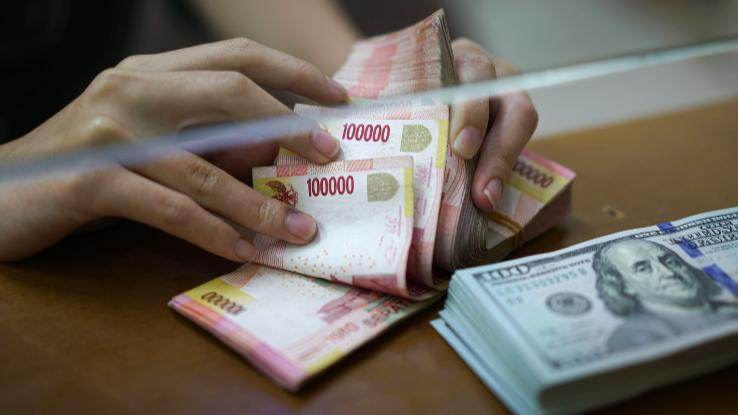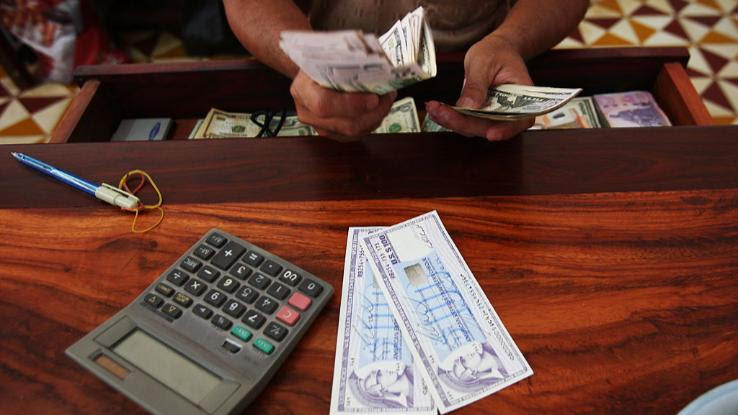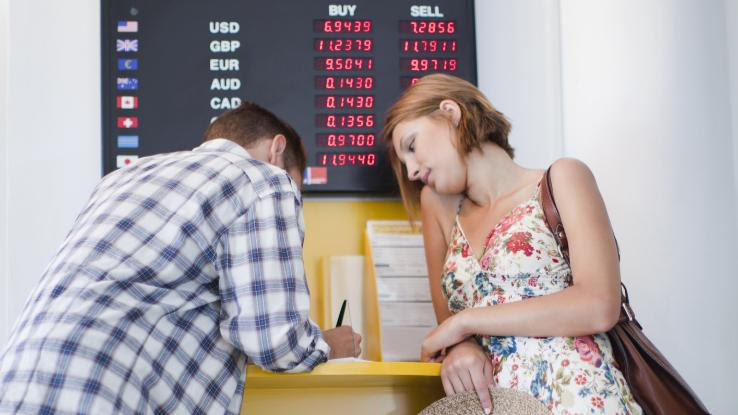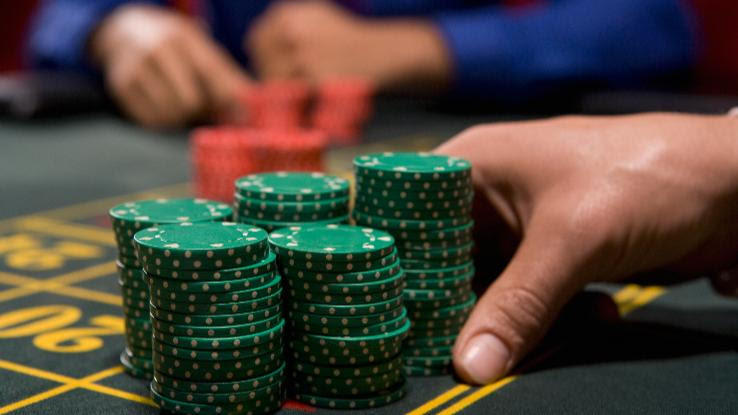Where Can I Cash a Check at Night

Now and then, you may hear of something called "quasi cash" or even have a quasi cash transaction show up on your credit or debit card statement. But what exactly is quasi cash and how do you know if you're making a quasi cash transaction?
Join us as we answer these questions and more. We'll give you the rundown of what quasi cash is, what it's used for, and how to know if you're making a quasi cash purchase.

Quasi Cash, sometimes also referred to as "near cash" is an asset that represents a certain amount of money, but isn't actually money itself. While traditional money, such as cash in hand or a checking account, can be immediately used to purchase goods and services, quasi cash generally first has to be converted.
Sometimes also referred to as cash equivalents, quasi cash is so highly liquid that it's more or less the next best thing to cash itself. While this may sound like an odd concept, things should start to clear up a bit when we get into examples of quasi cash, some of which you've probably used in the past.
Examples of Quasi Cash

Quasi cash is less an actual name of a certain type of asset and more of a way to describe a whole category of different financial tools. Traveler's checks, for instance, are quasi cash because, while they may not be actual money, they can be very easily exchanged for it.
Some other common examples of quasi cash include things like:
- The money in a savings account
- T-Bills/ Government Treasury securities
- Foreign currencies that are easily converted
- Certificates of Deposit (CDs)
- Bonds that are near their expiration
- Money Market securities
- Casino Chips
- Winning Lottery Tickets
As you can see, while none of these assets are cash, any of them could be exchanged for it fairly easily. Converting them might take some time or involve fees but they are all still highly liquid.
Why Do We Use Quasi Cash?

As far as why the everyday person might use it, most forms of quasi cash include benefits of some sort over actual cash. For instance, though many travelers simply rely on credit cards today, traveler's checks were once widely used to make carrying money overseas much easier.
They are still a much safer option than carrying a large amount of cash, as you can buy them at your local bank, then cash them in for local currency when you arrive in your destination country. If they should be lost or stolen along the way, they can be quickly canceled and replaced.
Other forms of quasi cash are a way to save money and earn interest at the same time. Savings accounts, T-bills, bonds, and money market securities all generally offer a return on your investment, depending on how long you chose to hold them.
Economically speaking, quasi or near money is often a useful way for analysts to determine a more realistic overall value. If, for instance, you were calculating a person's wealth but failed to factor in the $100,000 worth of investments they currently held in quasi cash, you'd arrive at a very different number.
Where Can You Get Quasi Cash?

This depends on what type of quasi cash you're looking to get. As you can see from the examples listed above, quasi cash comes in a variety of different forms.
If you're looking to get traveler's checks, CDs, or a savings account, for instance, you'd probably head to your bank or credit exchange.
If you are looking to buy T-bills or other government debt instruments, you can do so directly from the government. Other types of quasi cash are available for purchase through your financial broker. As we mentioned above, quasi cash isn't necessarily an actual financial asset but more of a category. Where you get each type will differ depending on which you're interested in.
What Is a Quasi Cash Merchant?

Merchants who sell certain types of quasi cash may be called quasi cash merchants. The only reason you'd generally need to be concerned with this is that some debit or credit card issuers have rules and fees regarding quasi cash transactions. Depending on which financial institution you use, who exactly is defined as a quasi cash merchant may vary.
Almost any casino or gambling establishment of any sort is usually defined as a quasi cash merchant. Others might include cash advances or money transfer services.
How Do Quasi Cash Transactions Work?

It's important to know exactly what type of transactions your financial institution of choice considers to be those of the quasi cash variety. In general, it's safe to say that pretty much any time you use your credit or debit card to purchase quasi cash such as traveler's checks, money orders, or casino chips, you're probably making a quasi cash transaction.
Since you are using your credit or debit card to purchase something that's so easily convertible to cash, many card issuers consider it the same thing as a cash advance. For instance, you might use your debit card to buy chips at a casino after your bank has already closed. While the chips are instantly exchangeable for cash, the transaction probably won't actually settle the same night.
Because of this, many card issuers will charge you the same fees as they would for a cash advance.
How to Use Quasi Cash

How you actually use quasi cash will depend on what type you've purchased. If you're using traveler's checks, you'll want to seek out a partnering bank or foreign exchange union to cash them out whenever you're ready.
If quasi-cash is a form of investment like a bond or CD, you'll want to wait until the period you agreed to keep your money invested expires. Then you'll be able to cash out on both your initial investment as well as reap any rewards that you earned in the form of interest.
If you're using quasi cash as a financial concept, it's more something to take into consideration when you're attempting to figure out the worth of a person, company, or other institution.
MORE FROM ASKMONEY.COM
Where Can I Cash a Check at Night
Source: https://www.askmoney.com/budgeting/quasi-cash?utm_content=params%3Ao%3D1465803%26ad%3DdirN%26qo%3DserpIndex
0 Response to "Where Can I Cash a Check at Night"
Post a Comment